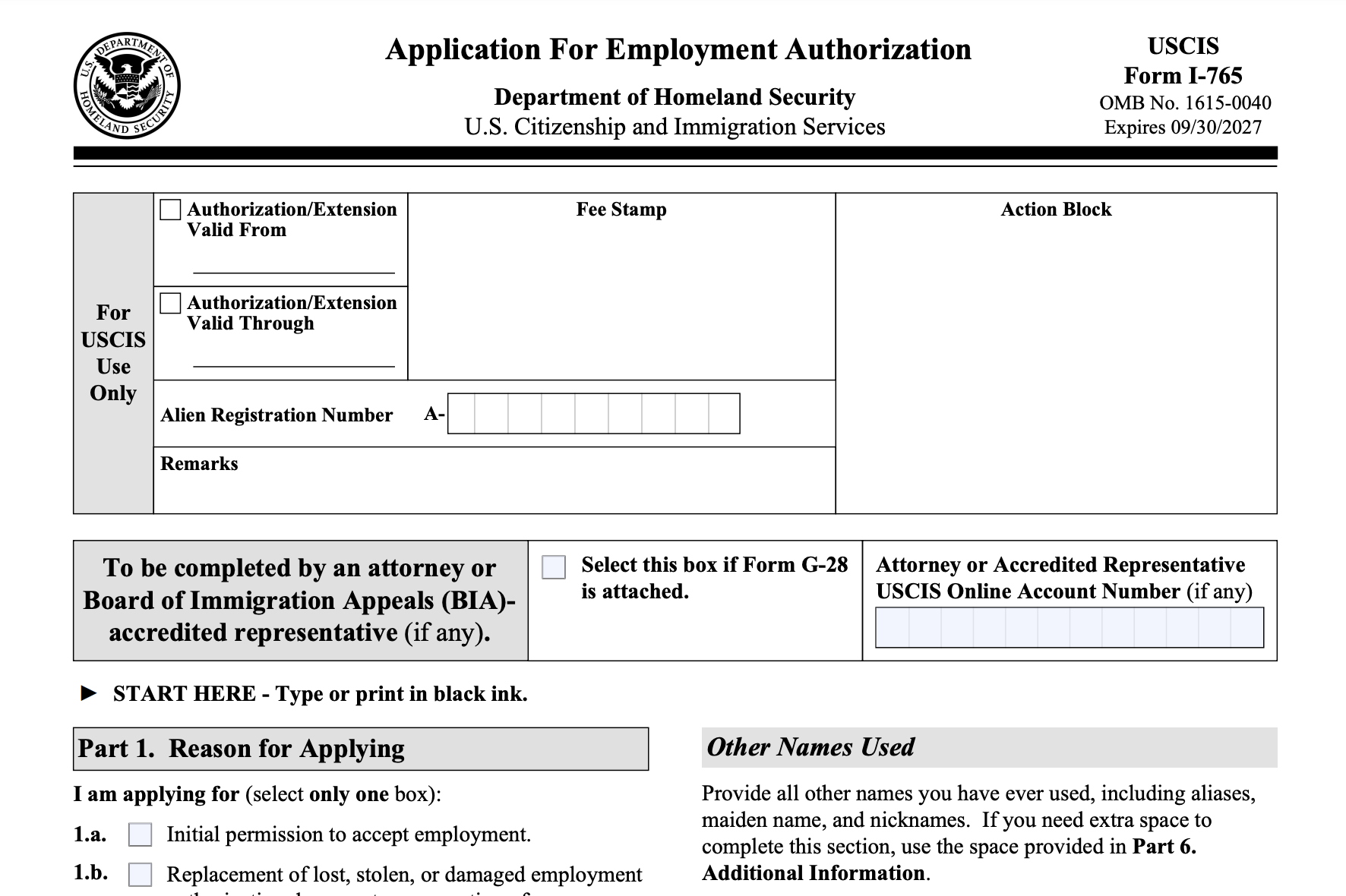
Meredith Gudesblatt is a student at Harvard Law School and a member of the Labor and Employment Lab.
In Today’s News and Commentary, DHS ends automatic extension of immigrants’ work permits, Starbucks Workers United launches a strike authorization vote, and a captive audience ban case is appealed to the Seventh Circuit.
On Wednesday, the Trump Administration published an interim final rule ending the practice of automatically extending the validity of work permits during the renewal process for certain classes of immigrants, including refugees, asylum seekers, and H1-B dependent visa holders. In other words, if USCIS takes too long to adjudicate a renewal application before the work permit expires, an individual will lose the ability to work legally through no fault of their own. USCIS only permits individuals to apply for a renewal 180 days in advance, but processing times often stretch on for much longer. In 2016, the government took steps to mitigate this issue, granting a 180-day auto-extension as part of the renewal application, provided it was filed before the expiration date. In 2022, the government increased the extension to 540 days due to COVID-delays. The backlog continues to grow even though USCIS is funded by applicant fees and government shutdowns have little to no impact on its operations. The interim final rule applies to all renewal applications filed as of today, so it is unlikely any effects will be felt immediately. Even so, this is cold comfort to all those who will be impacted. While Congress has made it unlawful to hire someone who is not legally authorized to work, it has never criminalized working without authorization. Taking away an individual’s work authorization does not render them deportable, and this rule will needlessly make life more difficult for both immigrant workers and those who want to hire them.
Meanwhile, Starbucks workers are one week into a strike authorization vote that has been accompanied by rallies and pickets across 60 cities and countless locations. If approved, more than 12,000 baristas in 45 states and the District of Columbia could strike. The strike itself would be open-ended and could potentially impact the holiday season. Starbucks Workers United, the union representing the baristas, has also filed a complaint with the International Olympics Committee, requesting that they drop the coffee chain as its “official partner” of the 2028 Olympics. The complaint contends that their treatment of workers seeking to unionize as well as allegations of forced labor abroad conflict with the Olympic Games’ code of ethics. The first Starbucks store voted to unionize nearly four years ago, and as of early 2024, Starbucks Workers United has been in discussions with the company to finalize a first contract to improve pay, benefits, hours, and working conditions. Currently, the Starbucks’ CEO earns 6,666 times the average barista. Labor relations have deteriorated over the years and just last month, Starbucks announced layoffs and closed 59 unionized locations. Even investors have requested the company restart negotiations. In a letter sent earlier this week, investors expressed concerns over Starbucks’ labor relations “as reflected by over one hundred Unfair Labor Practice complaints filed since the beginning of the year, in-store actions, partner walkouts and protests over store closings, and even strikes.”
Lastly, Mila reported on challenges to state laws banning captive audience meetings earlier this month, highlighting a case in Illinois that Judge Franklin Valderrama dismissed due to lack of subject matter jurisdiction. On Monday, the plaintiffs—a free-market think tank and a manufacturing group—filed a notice of appeal to the Seventh Circuit. The plaintiffs initially sought an injunction to block Illinois’ Worker Freedom of Speech Act, which was enacted on July 31, 2024, claiming it violated employers’ First Amendment right to freedom of speech. Judge Valderrama granted the Illinois Labor Department’s Director’s motion to dismiss, which argued that the groups could not qualify for an exception to sovereign immunity because the Director lacked the power to do commence enforcement proceedings. Instead, the workers themselves enforce the law either by filing a lawsuit directly or filing a complaint with the Illinois Department of Labor. Judge Valderamma agreed that the Director was not a proper defendant under Ex Parte Young, as her role was “ministerial or administrative.” Moreover, Judge Valderrama noted a general worry about the Act chilling speech was insufficient and no other evidence revealed the Act had any effect on their day-to-day operations. Law360 reports the groups’ attorney stressed the importance of their appeal, stating that “forcing [employers] to violate an unconstitutional law and face enforcement before [they can sue] sets a dangerous precedent.”






Daily News & Commentary
Start your day with our roundup of the latest labor developments. See all
February 20
An analysis of the Board's decisions since regaining a quorum; 5th Circuit dissent criticizes Wright Line, Thryv.
February 19
Union membership increases slightly; Washington farmworker bill fails to make it out of committee; and unions in Argentina are on strike protesting President Milei’s labor reform bill.
February 18
A ruling against forced labor in CO prisons; business coalition lacks standing to challenge captive audience ban; labor unions to participate in rent strike in MN
February 17
San Francisco teachers’ strike ends; EEOC releases new guidance on telework; NFL must litigate discrimination and retaliation claims.
February 16
BLS releases jobs data; ILO hosts conference on child labor.
February 15
The Office of Personnel Management directs federal agencies to terminate their collective bargaining agreements, and Indian farmworkers engage in a one-day strike to protest a trade deal with the United States.